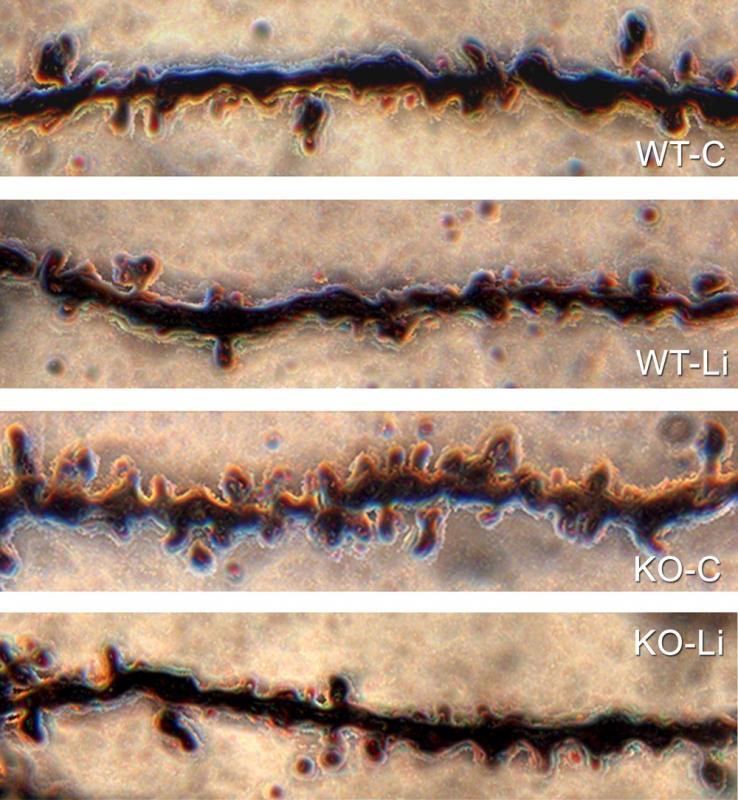
THIS ARTICLE IS MORE THAN FIVE YEARS OLD
This article is more than five years old. Autism research — and science in general — is constantly evolving, so older articles may contain information or theories that have been reevaluated since their original publication date.
The mood stabilizer lithium and two other drugs that block an enzyme called GSK-3 reverse cognitive deficits in a mouse model of fragile X syndrome, according to two studies published in August and September1,2.
Lithium disables GSK-3, an enzyme that regulates the migration of neurons and other aspects of brain development, and is overactive in the hippocampus of fragile X mice. The drug alleviates a suite of neuronal and behavioral deficits in these animals, including hyperactivity, susceptibility to seizures and irregular neuronal signaling. It has also shown promise in children and adults with fragile X syndrome.
Lithium has many molecular targets, however, so it has several side effects, such as excessive urination. A drug that specifically targets GSK-3 might be more clinically useful. Also, although cognitive deficits are the main symptoms of fragile X, animal studies have not consistently probed the effects of GSK-3 blockade on cognition.
In the new work, researchers tested whether lithium, TDZD-8 and VP0.7 — two inhibitors that target only GSK-3 — can improve cognition in fragile X mice.
In the first study, after identifying three cognitive deficits in fragile X mice, the researchers gave nine adolescent mice (aged 4 to 8 weeks) and ten adult mice (aged 8 to 12 weeks) lithium by adding it to their diet for four weeks1.
The drug reversed the deficits in both age groups, they found. However, the deficits returned after four weeks without treatment. The study was published 8 August in Genes, Brain and Behavior.
In the second study, published 13 September in Biological Psychiatry2, the researchers injected adult mice with a single dose of GSK-3 inhibitor or saline solution. Both inhibitors reversed the cognitive deficits. They also quieted the overactive remodeling of synapses, or neuronal junctions, in the dentate gyrus, an area of the hippocampus thought to regulate memory formation.
The results support GSK-3 as a good therapeutic target for treating fragile X syndrome, the researchers say.
References:
1. King M.K. and R.S. Jope Genes Brain Behav. Epub ahead of print (2013) PubMed
2. Franklin A.V. et al. Biol. Psychiatry Epub ahead of print (2013) PubMed
By joining the discussion, you agree to our privacy policy.